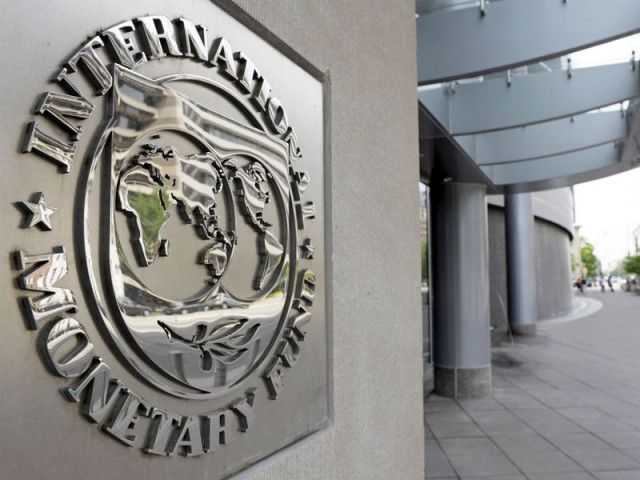Govt fails in reducing reliance on foreign assistance
Budgets $5.7b, 137% higher, in external loans and aid for the fiscal year 2013-14.

: A new arrangement with the IMF will determine whether foreign assistance receipts will materialise at the end of the fiscal year, as the government had also included programme loans that remained suspended since the last three years due to unstable relations with the IMF. PHOTO: FILE
In spite of tall claims of reducing reliance on foreign assistance, particularly on expensive credit, the Pakistan Muslim League – Nawaz (PML-N) budgeted $5.7 billion in external loans and aid for the fiscal year 2013-14, which is 137% higher than the assistance received in the outgoing fiscal year.
Of the total, 81% will be in shape of loans including 43% on exceptionally higher interest rates, 14% will be on account of PTCL’s privatisation arrears of the Etisalat and 5% will be received as grants.
The budget documents showed that out of $5.7 billion or Rs576.5 billion to be precise, the new government planned to borrow $2.5 billion. It has projected $500 million in loans from the Islamic Development Bank (IDB), a $500 million Euro bond and $1 billion on account of Chinese foreign currency deposits. Additionally, a $500 million loan on very unfavourable terms from the World Bank was also part of the anticipated external assistance.

Loans on account of Euro Bond will cost the country dear due to Pakistan’s junk credit rating, owing to deterioration in economic conditions. Loan from the IDB will cost the highest among all the international creditors and is usually only availed in times of dire needs. The Chinese assistance will carry Shanghai inter-bank offered rate. The facility will be extended under Pak-China currency swap arrangement that was originally meant for trade financing.
In his budget speech, Finance Minister Ishaq Dar claimed that his government will not get expensive loans from international lenders. He had said that only concessionary loans will be obtained.
Such high projections of foreign loans will limit the government’s ability to take decisions without influence, as the delivery of the budget will hinge on disbursements of these loans by international creditors, said the analysts.
For the outgoing fiscal year, the government had planned receiving Rs384 billion in foreign loans. The revised estimates showed that disbursements remained at Rs243.5 billion, which were Rs140 billion or 37% less than the target. Less than the anticipated receipts will not only shift almost the entire burden of budget financing on the domestic market, it will also erod foreign currency reserves held by the State Bank of Pakistan.
The projections for the fiscal year 2013-14 are Rs333 billion or 137% higher than the revised estimates of receipts for this year, according to the budget documents. A new arrangement with the International Monetary Fund (IMF) will determine whether these receipts will materialise at the end of the fiscal year, as the government had also included programme loans that remained suspended for the last three years due to unstable relations with the IMF.
Out of Rs576.5 billion, the government estimated borrowing Rs467.8 billion as loans. It also included Rs308.3 billion loans for programmes. The component of loans in total foreign assistance was alarmingly high at 81%, highlighting fast declining aid component in the external assistance.
For instance, the federal government had budgeted just Rs1.1 billion grant under the Kerry-Lugar civilian assistance package. For the outgoing fiscal year, it had projected Rs8.2 billion but managed to receive Rs6.5 billion only, according to the budget documents.
Since 2010, when the Kerry-Lugar assistance package became effective, Rs6.5 billion was the lowest projection made.
Under the five-year Kerry Lugar package, the Obama Administration had promised to give $7.5 billion, which averages to $1.5 billion each year from 2010-2015. However, the disbursements remained far below the targets, and whatever came to Pakistan most of it remained outside the purview of the government, according to Economic Affairs Division officials.
Published in The Express Tribune, June 14th, 2013.
Like Business on Facebook to stay informed and join in the conversation.



















COMMENTS
Comments are moderated and generally will be posted if they are on-topic and not abusive.
For more information, please see our Comments FAQ